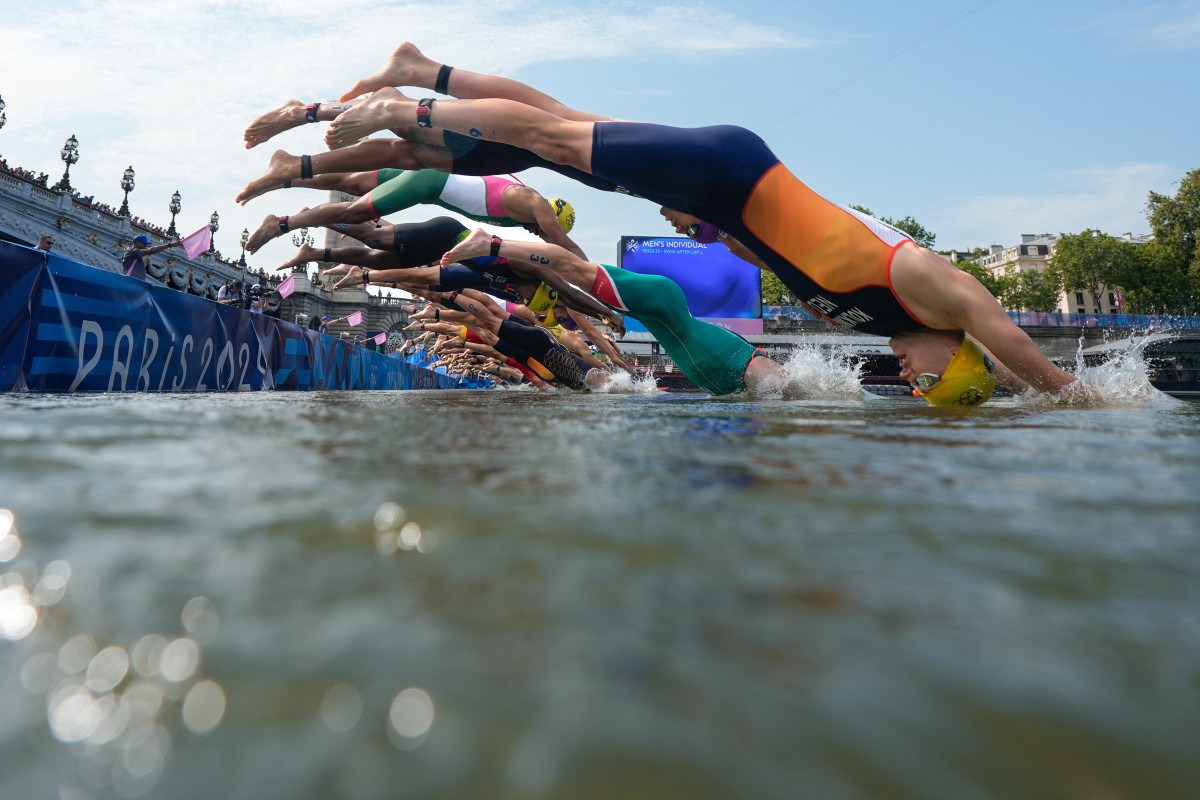Athletes competing in the triathlon event at the Paris 2024 Olympic Games faced a setback as part of their training in the River Seine had to be cancelled due to concerns about water pollution. Paris 2024 organisers announced that only the running and cycling elements of the triathlon mixed relay training would take place, with the swimming portion being deemed too risky. This decision was made in response to heavy rain which was likely to have affected the water quality of the Seine.
The cancellation of training highlights ongoing challenges with water cleanliness in the Seine, despite substantial investments by French authorities to improve the river’s quality. Over the last decade, approximately 1.4 billion euros have been spent on initiatives to clean up the Seine, including the implementation of new water treatment and storage facilities. However, heavy rainfall can still overwhelm the city’s drainage and sewage systems, leading to pollution in the river.
The issue of water pollution in the Seine has been a point of discussion throughout the Paris Games, with concerns about pollution levels leading to a delay in the men’s triathlon event earlier in the week. Ultimately, both male and female athletes were able to participate in the event after pollution levels were deemed safe. The fluctuating weather conditions in Paris, ranging from extreme heat to heavy rain, have added additional challenges to the already complex situation.
The cancellation of the swimming portion of the triathlon training serves as a reminder of the importance of environmental sustainability and the need for continued efforts to address water pollution. As major international events like the Olympic Games draw attention to environmental issues, it becomes increasingly important for host cities to prioritize sustainability and take action to protect the health of athletes and the environment. By addressing water quality concerns in the Seine and implementing proactive measures, Paris can work towards ensuring a safe and enjoyable experience for athletes and spectators alike.
As athletes prepare to compete in the Paris 2024 Olympic Games, the issue of water pollution in the Seine serves as a reminder of the interconnectedness of human activities and the environment. The cancellation of the swimming portion of the triathlon training highlights the ongoing challenges of balancing athletic competition with environmental stewardship. By raising awareness about water quality issues and promoting sustainable practices, the Paris Games can contribute to a broader conversation about the importance of protecting our natural resources and preserving the health of our planet for future generations.
In conclusion, the cancellation of part of the triathlon training in the River Seine due to water pollution concerns underscores the complexity of balancing sports events with environmental considerations. While efforts have been made to clean up the Seine and address water quality issues, challenges remain, particularly during periods of heavy rainfall. As the Paris 2024 Olympic Games continue, it is essential for organisers and authorities to prioritize sustainability, address water pollution concerns, and work towards creating a safe and environmentally friendly event for all participants. By taking proactive measures and raising awareness about environmental issues, the Paris Games can leave a lasting legacy of environmental stewardship and inspire future generations to protect our planet.










